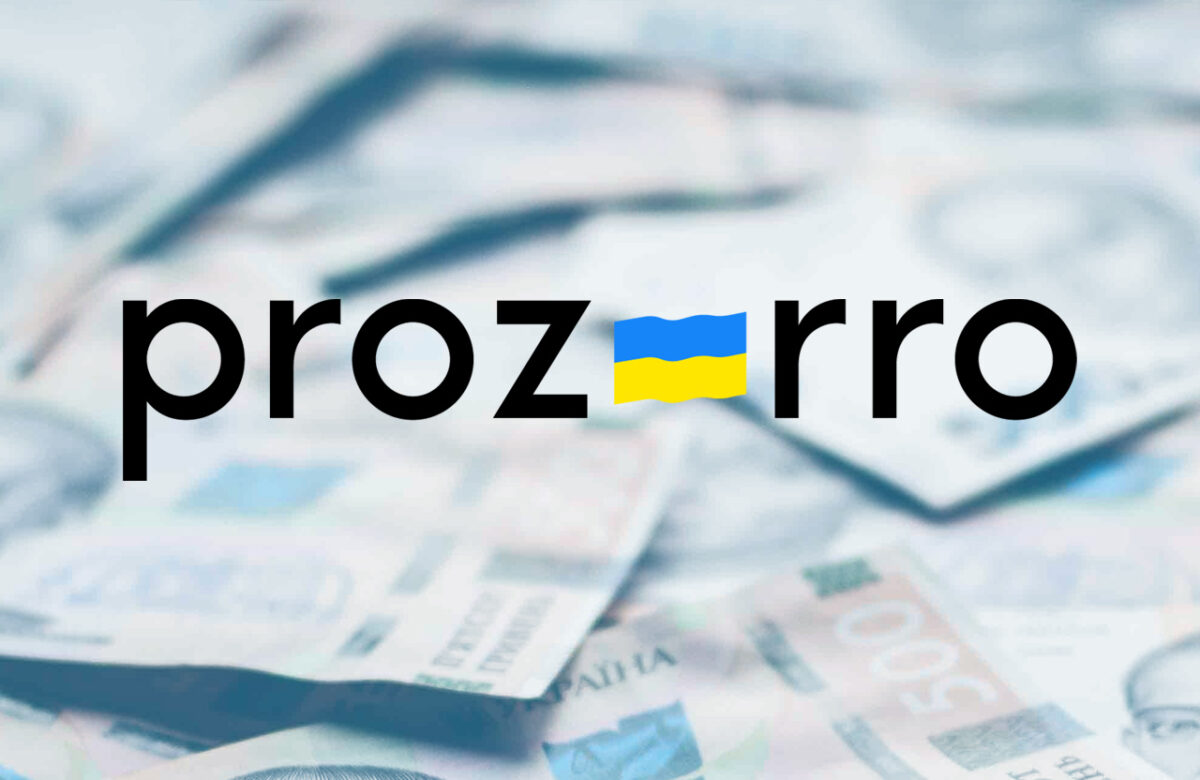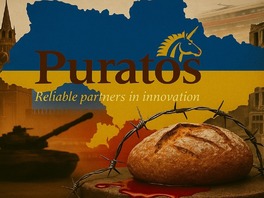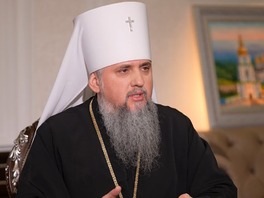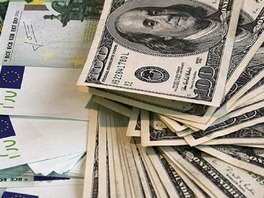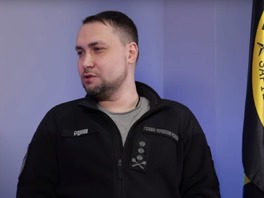Lately, scandals associated with public procurement have been popping up more frequently, including those that take place on auctions in the Prozorro electronic procurement system. This online platform was introduced at the legislative level with the ‘Public Procurement Law’ in 2016, initiated by civil society organizations (its development started back in 2014). The goalwas to make the tenders conducted by state organizations, institutions, and enterprises transparent, minimizing the potential for dishonest use of funds and preventing corruption. It is worth noting that, in a short time, Prozorro has proven its effectiveness. Corruption in public procurement has decreased. However, participants interested in corruption have learned to circumvent this system, coming up with various schemes. Regrettably, officials and law enforcement agencies often participate in these schemes. Sometimes, even the service purchasers themselves are forced to take part in these schemes, although they are aware of them. This article presents a case study of the state enterprise National Nuclear Energy Generating Company 'Energoatom' (SE NNEGC 'Energoatom') as published on Apostrophe.
How Prozorro Works
Procurements through Prozorro happen as follows. The customer publishes an announcement about a tender in Prozorro, specifying what exactly they want to purchase, at what price, and when. This information is published on all electronic platforms of the system.
Suppliers submit a bid for participation with their price proposal. Through three rounds of an online auction, the winner is determined, who offers the most economically advantageous price. The customer verifies their proposal for compliance with the tender conditions, and if all is well, they conclude a procurement contract.
In certain cases, the law does allow a fraction of procurement activities to be conducted outside of the electronic system. However, even in these instances, the outcomes must be published on the Prozorro platform.
The transparent nature of the Prozorro system is its primary asset, enabling public oversight to thwart anti-competitive and corrupt practices in public procurement.
It would seem that with the use of the Prozorro system in public procurement, there would be no corruption. However, the facts indicate otherwise.
Tenders and ‘Energoatom’
One of the largest state customers in Ukraine is the State Enterprise NNEGC 'Energoatom'.
'Energoatom' shoulders the responsibility of safely producing all of Ukraine's nuclear power. The company meets 55% of the Ukrainian populace's electricity needs, a figure that ramps up to 70% during the autumn-winter stretch.
The company comprises various sub-enterprises that collectively employ thousands of individuals. Given the scale of its operations, 'Energoatom' holds an understandably high potential for corruption.
Intriguingly, 'Energoatom' was the first state enterprise in Ukraine to sign a Memorandum with the NGO ‘Transparent Procurements' in a bid to establish a transparent and efficient public procurement system in the country. This commitment occurred even before the nationwide rollout of the Prozorro system.
'Energoatom's management put in place an anti-corruption program, which was recognized as the best amongst its peers in Ukraine's state enterprises. Nonetheless, despite these commendable efforts, over the past six months, Ukrainian media outlets have consistently reported on inflated prices in 'Energoatom's' tenders.
According to reports, in 2022, the State Enterprise NNEGC 'Energoatom' conducted 3,111 tenders through the electronic procurement system (EPS), for a total amount of approximately UAH 12 billion (contracts were signed for UAH 7.2 billion). In the first quarter of 2023, 'Energoatom' conducted 972 open bidding procedures in the EPS for a total amount of UAH 4.24 billion (contracts were signed forUAH 2.7 billion).
Several recent examples illustrate how 'Energoatom' has conducted its procurements.
For instance, NNEGC 'Energoatom' ordered materials for the oil-cleaning equipment of Rivne Nuclear Power Plant from the Czech company Neria Energy s.r.o. at the cost of 318 thousand euros – the procurement prices in euro turnedout to be 15% higher than the previous ones and there is no VAT in the deal. According to journalists' calculations, the overpayment amounted to UAH 2.5 million.
Another noteworthy case unfolded at the close of 2022.'Energoatom' conducted a large procurement ofcables for UAH 40 million. The cables were purchased from the company 'Interkabel Kyiv', a Cypriot offshore registered entity 'Interkabel Holdings Limited'. In this case, the 'Prozorro' system was not used. Journalists from 'Nashi Groshi' online newspaper took the prices ofthe purchased cables from open sources and multiplied them by the ordered quantity. It turned out that if 'Energoatom' had bought them at open prices, they would have cost 18 million hryvnias, or 55% cheaper.
This year, the company 'Interkabel Kyiv' was highlighted again in an investigation by the 'Nashi Groshi' journalists about 'NNEGC Energoatom' making purchases at inflated prices. For instance, following a tender, 'NNEGC Energoatom' concluded anagreement with the firm 'Trading House Innovative Cable Company' which has a charter capital of 500 hryvnias, concerning the supply of cable penetrations for Rivne NPP costing 53.93 million hryvnias. According to the journalists, the cost of these cable penetrations is one and a half times higher in dollar terms, which does not correspond to market prices at all.
So here is where 'Interkabel Kyiv' comes into the picture. The fact is that the 'Trading House Innovative Cable Company' was registered in February 2022 under the name 'Freivil Delight' in Vyshneve, Kyiv region. At that time, the founder and director was a lawyer, Sergiy Seko, from Rivne. In August 2022, the company was re-registered under its current name in Petropavlivska Borshchagivka in the Kyiv region - the founder and director of the company became Yuriy Aloyshyn from Kyiv. Before that, a person with such name and surname was listed as the head of the sales department for the Kyiv region of the company 'Interkabel Kyiv'.
Furthermore, 'Energoatom' through the Prozorro system purchased Turkish electric buses for UAH225 million instead of cheaper Ukrainian ones.
On March 9, 2023, the South Ukrainian Nuclear Power Plant ('Energoatom') signeda contract for the construction of protective structures with bags, presumably at significantly inflated prices.
On May 25,The Khmelnytsky Nuclear Power Plant ('Energoatom') signed a contract with KVP MU-13 'Elektropivdenzakhidmontazh' for the repair of the security perimeter lighting network for UAH 91 million. Accordingto the online newspaper 'NashiGroshi', there are a number of prices for goods in the estimate that are inflated by one and a half to two times.
‘Dealers and Protégés’
Looking at these examples, one might hastily conclude that the corruption schemes' main players are representatives from the client— in this case, 'Energoatom'. However, the reality is more complex. Often, clients themselves become unwitting participants, forced into these nefarious dealings by their circumstances.
So, NNEGC 'Energoatom' faced the problem of corruption risks when purchasing necessary specific products in tenders and appealed to the Ministry of Economy on this matter.
In the document, ‘Energoatom’ describes a scheme by which tender participants circumvent public state procurement in the ‘Prozorro’ system. Here's the quote: ‘Certain "entrepreneurs" enter into a specific "agreement" with some manufacturers of products necessary for "Energoatom", receive dealer powers from the manufacturers, and then bidding takes place according to the following scheme. "Energoatom" sends a request to the manufacturer to receive a price proposal, since the manufacturer already has a "dealer" in relation to "Energoatom", he forwards this request to the dealer. The dealer prepares a letter on behalf of the manufacturer, indicating a price three times higher than the factory cost of the manufacturer. "Energoatom", announces tenders, determining the expected cost according to the manufacturer's notification. Two firms come to the tender: the "dealer" and his "protégé" (there is no legal confirmation here, just an understanding of this based on the historical aspect of Energoatom's procurement, the same pair always plays at auctions), they conduct a mock auction and one of the "dealers" wins with a clearly inflated price.’
In the same appeal, ‘Energoatom’ expresses dismay at the lack of efficiency shown by law enforcement agencies in handling such cases. Investigations drag on for years, and ultimately, thanks to bribes, cases are simply closed.
This underscores that the ‘Prozorro’ system, while an excellent tool, cannot be seen as an all-encompassing defense against corruption. Tender participants can oftenfind ways around it, often involving collusion with controlling entities and law enforcement agencies.
Criminal EPPC SPETSZASHCHITA LLC
One of 'Energoatom's' primary suppliers, according to contracts, is the Engineering-Project-Production Company SPETSZASHCHITA LLC (EPPC SPETSZASHCHITA). This firm supplies materials, equipment, and services within the fire protection field. According to Youcontrol, in 2022 alone, EPPC SPETSZASHCHITA signed contracts with 'Energoatom' totaling UAH 84,884,943. In the first quarter of 2023, 'Energoatom' received services from EPPC SPETSZASHCHITA worth UAH 1,923,180.
A 'Due Diligence Check' report regarding EPPC SPETSZASHCHITA dated October 30, 2020, has come to light. The document, signed by Oleh Polishchuk, then Director for Prevention and Counteraction of Corruption at 'Energoatom', presents a stark conclusion. Polishchuk's recommendation indicates that continued association with EPPC SPETSZASHCHITA carries high risks due to the company's involvement in multiple criminal proceedings.





Copy of the document
Intriguingly, following his communication of possible corruption within 'Energoatom' to the National Agency on Corruption Prevention and the Ministry of Energy of Ukraine, Oleh Polishchuk, who had been serving as Director for the Prevention and Counteraction of Corruption and advisor to the company's president since 2014, was dismissed. This, however, is a separate tale.
Now let's delve into the criminal proceedings regarding EPPC SPETSZASHCHITA LLC. The document indicates a criminal case registered in the Unified Register of Pre-trial Investigations under number 32015230000000054 dated March 17, 2015 under Part 3 of Article 212 of the Criminal Code of Ukraine, which was led by the State Fiscal Service. The proceedings were closed.
The document also refers to a criminal case registeredin the Unified Register of Pre-trialInvestigations under number 12015080160001452 dated October 28, 2015. It states that the officials of EPPC SPETSZASHCHITA LLC illegally obtained state funds totaling 559,270 hryvnias by providing false data on expenses for employees who were on business trips during the execution of subcontract agreements at the Zaporizhzhia Nuclear Power Plant in 2014-2015.
The document also mentions the criminal proceeding number 42019220000000485 dated July 26, 2019. It pertains to a large ‘Centrenergo’ tender for the supply of fire extinguishing systems. EPPC SPETSZASHCHITA LLC is accused of overpricing and conversion of funds. The term of this proceeding wasextended in January 2022.
But that's not all. Open publications reveal several other criminal proceedings in which EPPC SPETSZASHCHITA LLC is involved.
For example, the Main Directorate on Corruption and Organized Crime Counteraction of the Security Service of Ukraine suspects EPPC SPETSZASHCHITA LLC and ’Fifth Guard Kyiv’ LLC in purchasing fire-fighting equipment from firms showing signs of fictitiousness and in providing improper benefits to officials of the State Emergency Service of Ukraine and the state-owned enterprise NNEGC 'Energoatom'. This is mentioned in the resolution of the Holosiivskyi District Court of Kyiv dated June 4, 2018.
EPPC SPETSZASHCHITA LLC has also been accused of performing fire safety work at ‘Energoatom’ facilities at inflated prices and of substandard quality. It conducts fictitious operations with conversion companies. It embezzles state funds in a corruptionconspiracy with the State Emergency Service (SES) and ‘Energoatom’.
It's worth noting that an SES official - Valeriy Novak - was suspected of conspiring with EPPC SPETSZASHCHITA LLC. (A copy of the court's resolution with the official's last name and position is in the editorial office's possession.)
As known, the SES is the organization that accepts fire safety works, which, according to the tenders, is carried out by the EPPC SPETSZASHCHITA LLC. If you think that some measures (even a dismissal from the responsible position) were taken against Novak after such serious allegations, you are mistaken.
The official continues to work calmly, what's more, he recently even consulted the public council at the SES.
As ‘Energoatom’ mentioned in the above-mentioned request to the Ministry of Economy – law enforcement agencies quite often investigate such cases for years without any result, and then they close them for bribes. And this proceeding, for unknown reasons, wasalso closed.
Another criminal proceeding under the number 42016000000000201 involving EPPC SPETSZASHCHITA LLC (case#760/10820/16-k) was opened back in 2016. It also incriminates tax evasion, conversion, fictitious operations. Currently, nothing is known about the progress of this case.
From all the above, several questions arise. How does a company with high corruption risks, which is a participant in many criminal cases, and against which the Anti-Monopoly Committee of Ukraine has initiated an investigation into possible anti-competitive actions, for years win tenders and receive significant funds from the state? In 2022 alone, EPPC SPETSZASHCHITA LLC received UAH 155,540,384 under various contracts. And in June 2023, it won 2 tenders in the same ‘Energoatom’ structures for a total amount of almost UAH 80 million (see here and here).
And what should be done about the ineffective and often corrupt practices within law enforcement agencies?
Сut from the same cloth
Despite the numerous criminal proceedings against EPPC SPETSZASHCHITA LLC, there may be a way for 'Energoatom' to cut ties with the contentious supplier.
The Ministry of Economy notes that if a participant has been held accountable for anti-competitive actions in the past three years, the customer (in this case ‘Energoatom’) has the right and even the obligation to reject the participant's proposal. This creates a legal basis for the customer to refuse to cooperate with companies that have a history of corruption or violation of competitive practices. Therefore, using this law, ‘Energoatom’ could avoid cooperation with the dubious EPPC SPETSZASHCHITA LLC. However, whether such a step will be taken is a question that needs to be monitored closely.
Regarding EPPC SPETSZASHCHITA LLC, according to public information, the Administrative Board of the Southeast Interregional Territorial Department of the Antimonopoly Committee of Ukraine issued an order on 09.02.2023 № 54/6-рп/к to initiate the consideration of the case № 54/6-23 for signs of violations of the economic competition protection legislation committed by EPPC SPETSZASHCHITA LLC and individual entrepreneur Sovgirya R.P.
As the editorial staff found out, in 2021, the NGO Anticorruption Program ‘Monitoring’ appealed to the Antimonopoly Committee on this matter. At our request, the NGO provided the appeal documents and the response from the Antimonopoly Committee.
According to the public organization, there are indications of collusion between the procurement procedure participants, EPPC SPETSZASHCHITA LLC and individual entrepreneur Sovgirya Roman::
·They jointly participated in two procurements;
·In their proposals, to confirm the presence of a material and technical base, both of the mentioned participants indicate the address of the same premises, namely Office premises, Zaporizhzhia city, Zavodska street, Office 3, 67 and Warehouse premises, Zaporizhzhia city, Zavodska street.
·Both participants have shared employees, specifically the Cost Engineer Irina Homenko, who prepared the consolidated estimate calculation of the construction object's cost, both for EPPC SPETSZASHCHITA LLC and for individual entrepreneur Sovgirya Roman.
·Both participants use the same equipment and expendable materials, confirmed by identical Certificates of Conformity provided in the tender proposal.
·From the analysis of information contained in open registers, it has been established that in the electronic declaration provided by Maria Sovgirya for 2019, Roman Sovgirya is indicated as her husband, who received an income of UAH 518,470.00 from the activities of individual entrepreneur Roman Sovgirya, financial assistance amounting to UAH 150,000.00, and a salary at the main workplace amounting to UAH 62,710.00 from EPPC SPETSZASHCHITA LLC.
The above suggests that Roman Sovgirya works at EPPC SPETSZASHCHITA LLC and is also a self-employed individual who jointly with EPPC SPETSZASHCHITA LLC participates in tenders.


Copy of the document
But it took two years for the AMCU to open a case on this matter.
What did the AMCU answer?
‘Apostrophe’ reached out to the AMCU with a request to comment on the situation regarding violations of the legislation on protection of economic competition by EPPC SPETSZASHCHITA LLC and individual entrepreneur Sovgirya Roman Pavlovich, and to inform about the consideration of the case opened in this regard.
We also asked to provide statistics on how many participants have been held accountable for anticompetitive violations in public procurement throughout the entire existence of the Prozorro system.
As stated in the AMCU's response to the ‘Apostrophe’ request, ‘on average, the implementation of control measures by the Committee bodies, in particular the detection of violations in the form of anticompetitive concerted actions that distort the results of trades, auctions, competitions, tenders, takes from 6 to 24 months’.
At the same time, the Committee noted that a decision on EPPC SPETSZASHCHITA LLC could be made already this year: ‘The issue of making a decision in case № 54/6-23 for consideration by a Committee body is scheduled for the second half of 2023’.
The total number of decisions made by the Committee bodies in cases of violations in public procurement for the period from the launch of the Prozorro public procurement system (from 01.04.2016) to 31.04.2023 is presented in the table below (consolidated information on distorting the results of AMCU trades is published here).
| Period | The number of adopted decisions by year of adoption in total by all bodies of the Committee |
| April - December 2016 | 107 |
| 2017 | 142 |
| 2018 | 136 |
| 2019 | 316 |
| 2020 | 263 |
| 2021 | 193 |
| 2022 | 73 |
| January - April 2023 | 68 |
The AMCU noted that a single decision could include multiple established violations of anticompetitive concerted actions during procurement. For instance, in 2021, 18 violations were established within the SAP case, and 42 violations were found in the 2020 ‘Interpipe’ case.
The AMCU also reported that for violation of the Law of Ukraine ‘On Protection of Economic Competition’ fines are imposed up to ten percent of the income (revenue) of the economic entity from the sale of products (goods, works, services) for the last reporting year preceding the year in which the fine is imposed.
In addition to liability in the form of a fine, according to the Law of Ukraine ‘On Public Procurement’, the customer can also deny the participant in the procurement procedure, which was mentioned in the already mentioned response of the Ministry of Economy to the ‘Energoatom’ request.
Let's note that according to the court decision, the results of auctions can be canceled.
However, ‘Energoatom’ has the opportunity to get rid of risky contractors in case of an active position: constant analysis of suppliers' activities, tenders with them, and appeals (in case of violations) to law enforcement agencies and the AMCU.
‘Apostrophe’ sent a request with relevant questions to ‘Energoatom’ about what actions and measures the company is taking to prevent risky cooperation with such suppliers as EPPC SPETSZASHCHITA LLC.
The State Enterprise NNEGC ‘Energoatom’ responded to us that ’it is not the administrator of the requested information in the context of the Law’.
***
After the creation of the Prozorro system, public activists rejoiced that Ukrainians finally had the opportunity to monitor how effectively and honestly the state spends money. However, corrupt officials quickly adapted to the new realities and found ways to circumvent the system. As Kyiv activist and combat participant Oleg Simoroz told ‘Apostrophe’: ‘Until NABU and the courts start doing their job seriously, officials will continue to steal from the budget. Not a single corruption case has ended with imprisonment yet’.

